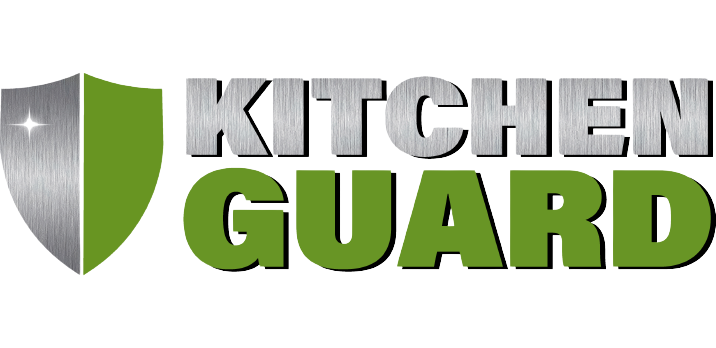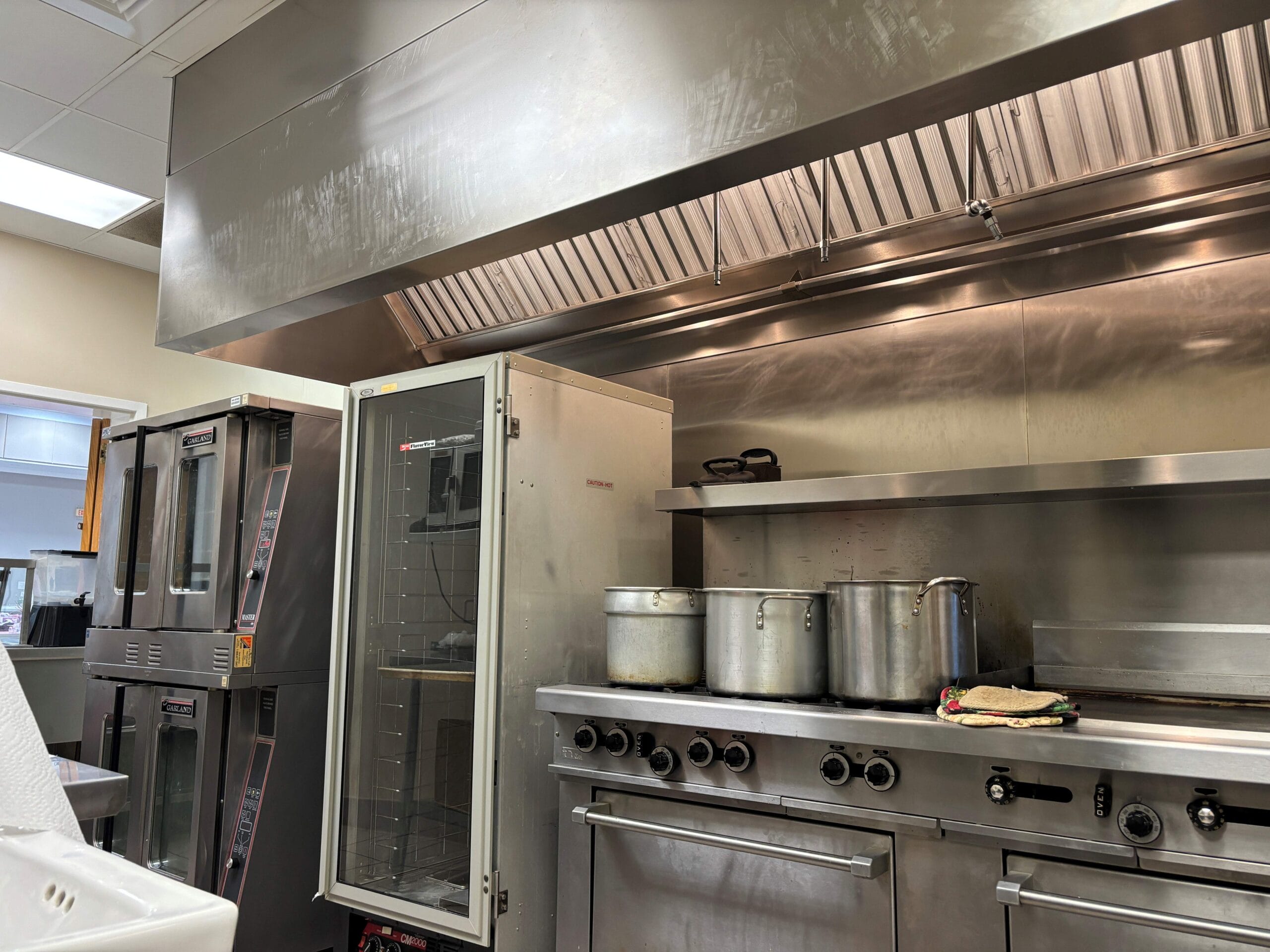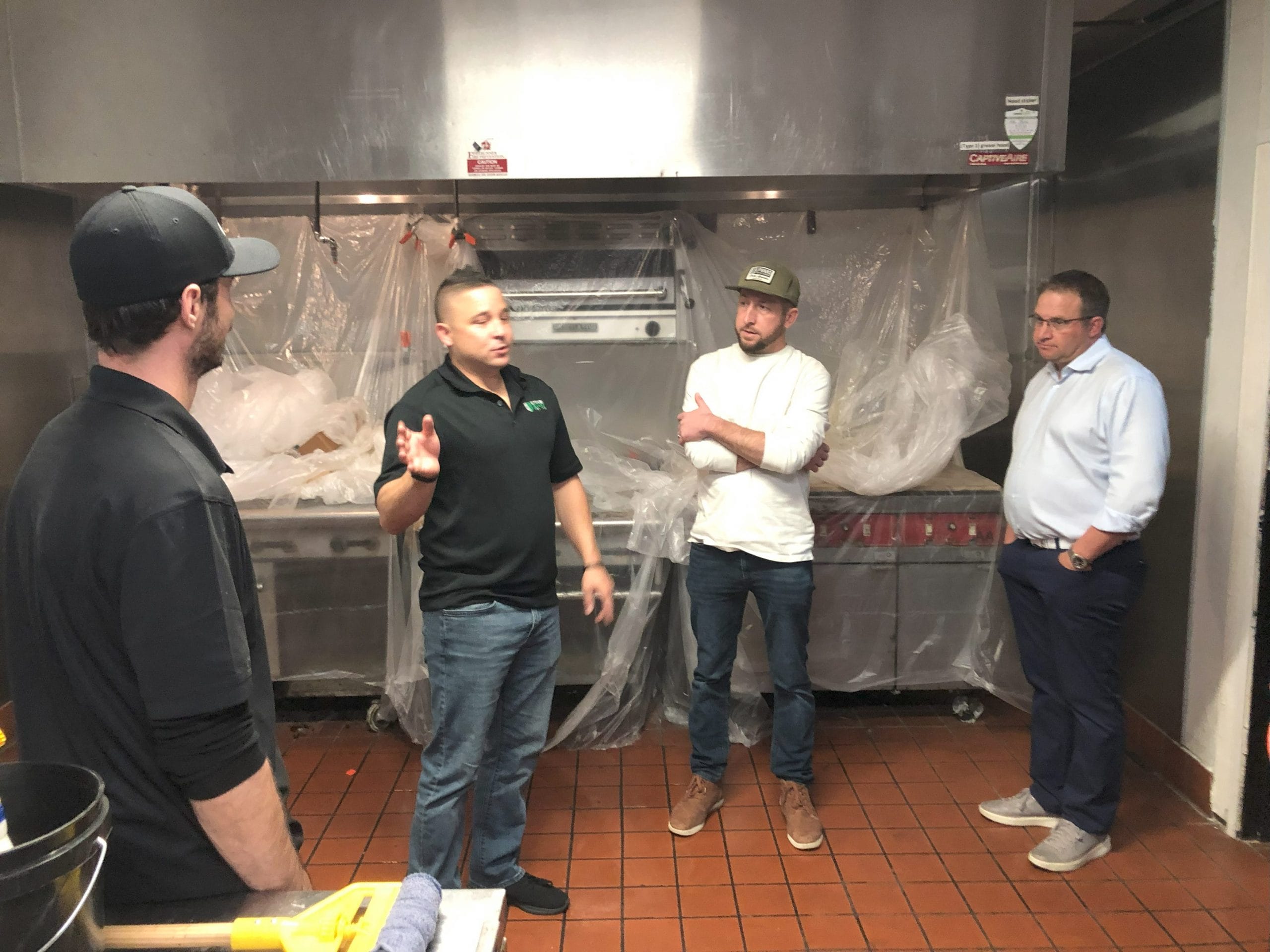How to Keep Your Commercial Kitchen Healthy & Optimally Running
The Importance of Clean Filters to Specification & Standard
In the hustle and bustle of commercial kitchen life – crafting amazing tasting food to please your guests – it’s easy to overlook the less glamorous aspects of maintenance – like cleaning. Yet neglecting such crucial tasks – whether it’s cleaning your filters and hoods – can have negative consequences for the kitchen staff, the ownership and of course, the guests! Negative consequences like health, efficiency, and aesthetic appeal. Cleaning your filters, for example, is an often-overlooked component yet they play a critical role in kitchen safety and functionality.
Kitchen hoods and the specific filters such as stainless-steel baffle filters, aluminum mesh filters or even charcoal filters – serve as the frontline defense against grease, smoke, and unpleasant odors generated during cooking (and your hard-working staff!). When your team prepares and cooks scrumptious French fries or wagyu steak (medium rare, of course), byproducts are inevitably released into the air. When that happens, they can quickly accumulate on surfaces. If not properly managed (like cleaned), they are unsightly, smelly and can disrupt the efficiency (and performance) of the kitchen. And that’s not a good thing.
Why? Because over time, this buildup becomes a breeding ground for bacteria and mold, and the accumulation of grease poses a significant fire risk, making regular cleaning not only a matter of hygiene but also safety. According to the National Fire Protection Association (NFPA), approximately 61% of all restaurant fires are caused by cooking (with cooking equipment or materials being most frequently ignite, causing the fire). Now, take a minute to think of the insurance premiums after a fire in your restaurant. Oh, and if there is a devastating fire, the first place the insurance company is going to look is your cleaning records.
Frequency:
To keep your commercial kitchen healthy (and your staff and guests), as well as functioning optimally, you need a professional cleaning service. And you need it frequently. Not just some “Chuck in a truck,” but a highly trained professional that cleans the entire system, the “nooks and crannies,” and offers filter cleaning (and exchange) so you can stay open and service customers.
So how often should you clean your hoods and filters? Well, it depends on several factors, including the type of kitchen hood and ventilation system in place. In general, however, most commercial kitchens should adhere to a regular cleaning schedule as outlined by the NFPA 96 code to ensure optimal performance and compliance with health and safety regulations. That’s right, you read correctly. Cleaning your filters (that includes the hood and entire ventilation) is required by law.
Type 1 Hoods:
For kitchens equipped with Type I hoods, which are designed to remove grease-laden air, more frequent cleaning is typically necessary. These hoods are commonly found in environments where heavy-duty cooking methods are employed, such as those using fryers, griddles, or char broilers. Experts recommend cleaning Type I hoods and their associated filters at least once every month to prevent grease buildup and maintain efficient operation.
Type II Hoods:
On the other hand, Type II hoods, which primarily capture heat, steam, and odors, may require less frequent cleaning. These hoods are often utilized in kitchens where lighter cooking methods are employed, such as baking or steaming. However, even in these environments, regular maintenance is essential to prevent the accumulation of airborne contaminants and ensure a clean and comfortable workspace.
Volume of Activity:
In addition to the type of hood, the volume of cooking activity also influences the cleaning frequency. High-volume kitchens that operate for extended hours or those that experience peaks during certain times of the day may need more frequent cleaning to keep up with the demand. Conversely, lower-volume establishments may be able to extend the intervals between cleanings, although regular inspections should still be conducted to assess the condition of the hoods and filters.
Regardless of the specific circumstances, establishing a comprehensive cleaning schedule is essential for maintaining a healthy and safe kitchen environment. This schedule should not only outline the frequency of cleaning but also specify the tasks involved and designate responsible individuals or teams to carry them out.
Filter Exchange:
Professional companies like Kitchen Guard provide comprehensive, entire-kitchen-ventilation systems cleanings performed at night when your business is closed. Therefore, no impact to the daily operations. Now, imagine you or your team closing the restaurant the night before, and not having to thoroughly clean or perform your closing duties, because you know Kitchen Guard is coming. When you come in the next day, the kitchen is spotless. The filters are thoroughly cleaned, as is the entire system, to NFPA standards. Now you can do what you do best…prepare, cook, and serve! That’s exactly what you get with Kitchen Guard because we know the importance of cleaning kitchen hoods and filters in the least disruptive way for your kitchen to satisfy your kitchen team and guests.
Depending on your specific kitchen hood and system, we keep an extra set of filters in our fleet to constantly exchange your dirty filters with clean ones…when you need, and how often you need it. Without disruption to your business. This hassle-free service keeps your kitchen compliant, fully functioning, and of course, gives you (and your staff and guests) peace of mind.
By preventing grease buildup, minimizing fire hazards, and promoting a hygienic environment, regular maintenance ensures the health and safety of both customers and staff. By understanding the unique requirements of their kitchen hood and ventilation system, restaurant owners and operators can establish effective cleaning protocols that contribute to the overall success of their establishment. Filter exchange is one of the simplest ways to conveniently stay compliant and fully functioning.


